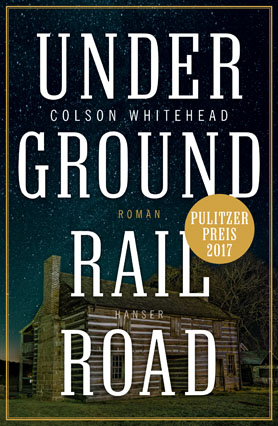
Ray Carney just wants to lead decent life as a black furniture salesman at the beginning of the 1960s in Harlem. His wife Elizabeth is expecting their second child and even if his in-laws are not happy with him, his life is quite ok. His cousin Freddie shows up from time to time with some bargains and Ray does not ask too many questions about the origins of the odd sofa or necklace. But when Freddie and a bunch of crooks plan to rob the Hotel Theresa – something like Harlem’s Waldorf – and as for his help to get rid of the loot, his life becomes a lot more complicated especially since Ray quickly understands that there is not much room for negotiation.
With “The Underground Railroad” and “The Nickel Boys” Colson Whitehead has catapulted himself at the top of the list of contemporary writers. Just as in his former works, “Harlem Shuffle” brilliantly captures the mood and the atmosphere of the time it is set in. It only takes a couple of pages to get a feeling of 125th street of the time and first and foremost, how people experienced the riots after the shooting of an unarmed black boy by a policeman. Thus, even though the plot is set sixty years in the past, he succeeds in connecting it to present day events and issues.
“The way he saw it, living taught you that you didn’t have to live the way you’d been taught to live- You came from one place but more important was where you decided to go.”
Ray has decided for a decent life with his furniture store, he keeps to himself and his family and does not want to get involved too much in any criminal doings. He has grown up with broken glass on the playground, killings where just a side note of everyday life. Yet, Freddie is his cousin and blood ultimately is thicker than water. They have grown up like brothers and the bond cannot easily be cut even though this time, it means serious consequences.
The novel develops slowly but it is those seemingly unrelated marginalia that provide the depth of the story and create the atmosphere on which the story lives. A great novel vividly written and definitely worth reading, however, I am not as enthusiastic as I was after reading his former novels.

